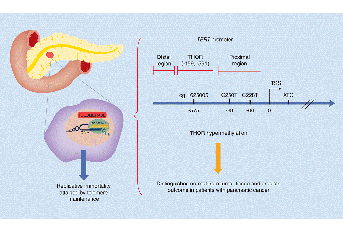Associação Portuguesa de Investigação em Cancro
THOR methylation as potential diagnostic and prognostic pancreatic cancer biomarker
THOR methylation as potential diagnostic and prognostic pancreatic cancer biomarker

Authors and Affiliations:
Faleiro I1,2,3, Apolónio JD1,2,3, Price AJ4, De Mello RA1,3, Roberto VP1,2,3, Tabori U5, Castelo-Branco P1,2,3.
1. Department of Biomedical Sciences & Medicine, University of Algarve, Campus de Gambelas, Edifício 2, 8005-139 Faro, Portugal.
2. Centre for Biomedical Research (CBMR), University of Algarve, 8005-139 Faro, Portugal.
3. Algarve Biomedical Center, University of Algarve, Campus de Gambelas, 8005-139, Faro, Portugal.
4. Division of Biology & Biological Engineering, California Institute of Technology, Pasadena, CA, USA.
5. Arthur & Sonia Labatt Brain Tumor Research Center, The Hospital for Sick Children, University of Toronto, Toronto, ON, Canada.
Abstract:
Aim: We explore the biomarker potential of the TERT hypermethylated oncologic region (THOR) in pancreatic cancer.
Materials & methods: We assessed the methylation status of THOR using the cancer genome atlas data on the cohort of pancreatic cancer (n = 193 patients).
Results: THOR was significantly hypermethylated in pancreatic tumor tissue when compared with the normal tissue used as control (p < 0.0001). Also, THOR hypermethylation could distinguish early stage I disease from normal tissue and was associated with worse prognosis.
Discussion: We found that THOR is hypermethylated in pancreatic tumor tissue when compared with normal tissue and that THOR methylation correlates with TERT expression in tumor samples.
Conclusion: Our preliminary findings support the diagnostic and prognostic values of THOR in pancreatic cancer.
Journal: Future Oncology




